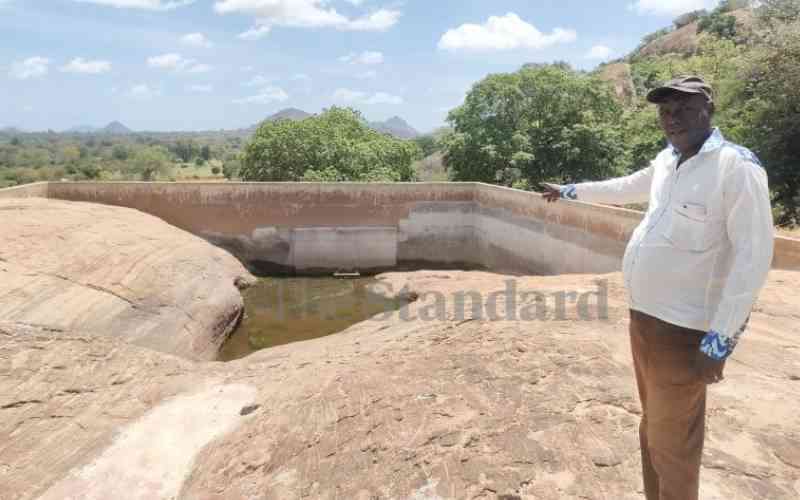×
The Standard e-Paper
Informed Minds Prefer The Standard

Early morning and a group of farmers gather inside a vegetable farm located beside a huge rock located at Ndui village in Mutomo, Kitui South sub-county.
The farmers begin tending to vegetables; pulling out weeds, pruning dry leaves while others check on the working condition of drip lines in readiness to irrigate the farm.
